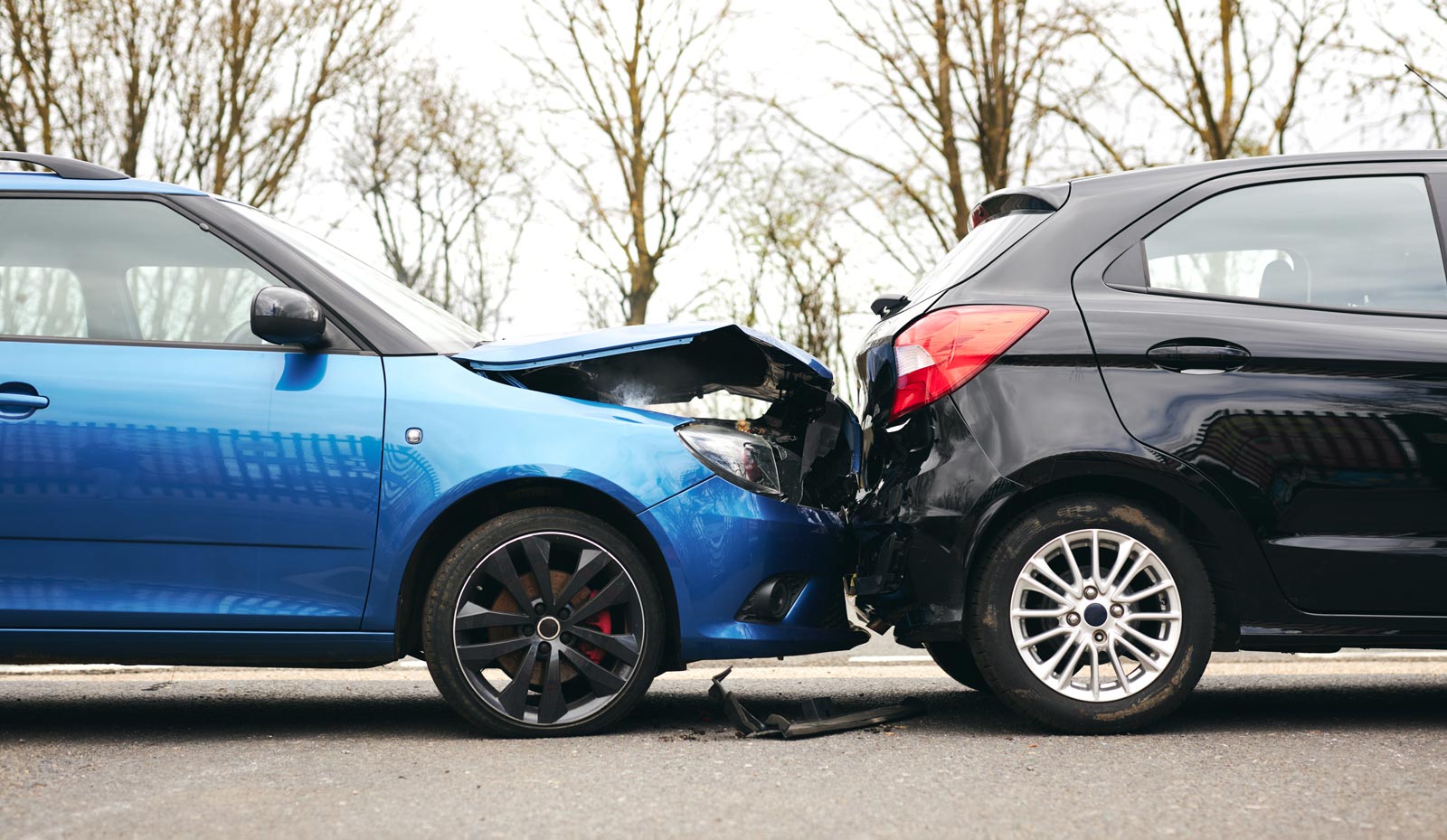Delayed injuries and delayed symptoms are extremely common after car accidents. Time after time, we’ve heard variations on the same story from our clients: “I thought I was doing okay in the hours after the crash, but the next morning I could hardly move due to my back and neck pain.” Later medical exams might end up revealing herniated disks, compression fractures, or other serious injuries that require extensive rehab, injection therapy, or even surgery.
Often, pain and soreness from soft tissue injuries get worse over the first two days after the accident. Other clients experience cognitive or emotional effects of a concussive-force mild traumatic brain injury, but do not fully realize their deficits until they try to go back to work or school.
When delayed symptoms occur, it’s best to seek medical attention immediately. Apart from the need to treat your injuries, your lawyer will rely on the evidence contained in your medical records to help prove your case. By going to the doctor and reporting your symptoms, you are helping to create medical evidence that may be helpful to your attorneys.
In this article, we’ll discuss some of the most common car accident injuries that may present delayed symptoms, and what you should do about them.
RELATED: Who Pays the Medical Bills After an Auto Accident?
Advice from an Attorney: Seek Medical Attention Early (and Often)
Medical records documenting your symptoms are the foundation of every successful personal injury claim. If your symptoms haven’t been documented in the medical records, they don’t exist as far as your car accident claim is concerned.
The insurance company will not accept a statement like “I suffered from headaches and dizziness for three weeks” at face value. It must be documented by a professional to have any weight.
Our advice:
- Go to the doctor right away as soon as you notice any symptoms.
- As long as symptoms persist, continue to see your doctor at regular intervals as appropriate for your condition (e.g. weekly, monthly, every 90 days, etc.), even if there is no new progress in your recovery.
- Always do what your doctor tells you to do.
If you don’t follow these steps, the insurance company will argue that your symptoms must not be that bad if you didn’t see the doctor or follow their treatment guidelines. And you won’t have the medical records you need to refute them.
Common Injuries and Conditions That May Have Delayed Symptoms After a Car Accident
After a crash, some injuries are obvious. Lacerations, broken bones, and blunt trauma (for example) usually lead to outward signs and immediate pain. While everyone reacts differently to being in a car crash, these types of injuries are often straightforward to identify and treat.
Other injuries and medical conditions are less visible. Pain may increase over time, or symptoms might not appear until several days after a crash. Furthermore, because there’s often no way to objectively measure the severity of pain, injury victims may even be accused of exaggerating their symptoms or even making them up entirely.
Below are a few of the most common examples of these types of delayed auto accident injuries.
Neck Injuries, Back Injuries, and Spinal Cord Injuries
Because of the force involved in vehicle collisions, fragile and complex parts of the body, like the neck and spine, can suffer internal damage without any external signs of injury. Symptoms can lag behind by a few days or even weeks—and if you don’t realize how serious your injury is right away, you’re more likely to inadvertently aggravate it.
Some potential signs and symptoms of a neck injury, spinal injury, or back injury include:
- Increased muscle stiffness, tightness, or spasms
- Reduced range of motion in the neck, back, shoulder, etc.
- Tingling (like part of your body is “asleep”), numbness, or even paralysis
- Weakness in the arms and/or legs, or more general fatigue
- Emotional symptoms like anxiety or depression
- Trouble sleeping
- Headache, dizziness, vertigo, or even nausea
Other Soft Tissue Injuries
Injuries to soft tissues like ligaments, muscles, tendons, and other organs share many of the symptoms listed above.
There are a few reasons that soft tissue injuries tend to have delayed symptoms. The first one is the effects of heightened adrenaline. In the minutes and hours after a crash, your body releases a large amount of this “fight or flight” hormone, which acts like a natural painkiller. Once your adrenaline levels drop back to normal levels, the pain becomes more noticeable.
Second, soft tissue injuries trigger a natural inflammatory response in your body. The swelling of injured tissues can increase over a period of several days, which contributes to increased feelings of pain after a car accident.
Again, in situations like this, make sure you see a doctor as soon as possible. Delayed pain can be a sign of a severe injury, such as a herniated disc, that probably isn’t going to heal with rest alone. Without proper treatment, chronic pain is likely to develop.
Concussions and Traumatic Brain Injuries
Car accidents are a leading cause of brain injuries. Every person’s brain injury symptoms are unique, and in some cases, it takes time for individuals or their loved ones to notice the symptoms of brain trauma.
Brain injury symptoms can include:
- Trouble focusing, concentrating, paying attention, and remembering
- Increased difficulty communicating or speaking
- Problems with balance, vision, hearing, or other senses
- Changes to sleeping patterns
- Mood swings, increased irritability or aggression, or increased sadness or depression
- Headaches, fatigue, or nonspecific pain
If you or a loved one has been in a collision, even if it seemed like a minor one, brain injuries can result. When they do, sometimes even standard medical imaging tests like MRIs can’t detect these complex injuries. You may need to meet with a specialist for more sophisticated evaluations or imaging tests.
RELATED POST: Delayed Concussion Symptoms and Post-Concussion Syndrome – Crosley Law
Psychological and Emotional Conditions
After a car crash, it’s easy to focus on tangible, physical problems that arise, but psychological issues are also common after car wrecks. Researchers have found that approximately 9% of people who survive motor vehicle collisions develop post-traumatic stress disorder (PTSD). Other mental health problems can develop as well, such as major depression, anxiety disorders, or a phobia of driving.
Some psychological and emotional symptoms to watch out for after a crash include:
- Having intrusive thoughts or distressing dreams about the collision
- Not wanting to discuss the accident
- Being reluctant to drive or ride in a vehicle, or even refusing to travel by car entirely
- Feeling unsocial, detached, or apathetic
- Experiencing reactions such as being more easily startled (or overreacting to being startled)
- Feeling confused, helpless, irritable, overwhelmed, or upset
- Experiencing sleep disturbances
After a car accident, victims are at an increased risk for a wide variety of mental health issues. If you’re experiencing any of these problems, it’s important to understand that mental pain and suffering are no less real and no less important than the physical symptoms that victims experience. And while some mental or emotional symptoms arise immediately after a crash, it’s common for these issues to develop over time and then to require additional time before doctors can accurately diagnose and treat them.
Delaying Treatment Can Complicate Your Personal Injury Claim

Insurance companies frequently take advantage of delayed symptoms to cast doubt on personal injury claims—especially if you didn’t see the doctor as soon as you noticed a problem.
For example, say you were in a bad car accident but managed to walk away from the crash with only minor aches and pains. The next day, you wake up with a bad headache, abdominal pain, and stiffness. You spend the next several days on the couch, hoping that the pain will simply go away in time. But it doesn’t. Finally, after a week or two, you see the doctor.
This is a common story. But because you didn’t see a doctor right away, you have two potential problems:
- The insurance company will probably say you aren’t hurt as badly as you claim. Their reasoning: If you didn’t even bother to see a doctor for a week, how bad could your pain really be?
- The longer the gap of time between the crash and a medical evaluation, the harder it is to prove that the crash was the root cause of your injuries. The insurance company might accuse you of trying to get them to cover treatment for a pre-existing condition, or even of being responsible for your own symptoms.
Our advice, again, is not to take that chance. As soon as you notice any symptoms after a crash—even minor ones—go see a doctor. It could be that it’s nothing major. But if you have been seriously hurt, you want to know as soon as possible so you can start getting treatment, and start building a strong personal injury claim.
Car Crash? Call Crosley Law Firm Right Away
Between vehicle damage, getting medical treatment for injuries, and fielding calls from insurance adjusters, car accident victims often feel overwhelmed in the days and weeks after a crash.
The insurance company may even try to use your own words against you. If you get a call in the days after your crash, you might not know the full extent of your injuries, especially if symptoms are delayed or you haven’t gotten a full medical examination. You might say you feel okay on that phone call, but then start experiencing pain or other symptoms later. If this happens, the insurance company will probably try to deny any claim you make for an injury you didn’t inform them about—even if you didn’t even know about it yet.
EMBED VIDEO: Should I Talk to the Insurance Adjuster?
For these reasons and many more, the best thing you can do after a car accident (after seeing a doctor) is call a qualified, experienced car accident lawyer like the ones at Crosley Law Firm.
During a free consultation, we will listen to the details of your story and give you honest advice about what you should do. If we think we can help, we work on a contingent fee basis, which means you don’t pay us a cent unless we get you a settlement or win your case in court.
Call 210-LAW-3000 | 210-529-3000 today, or fill out a simple online contact form and we’ll get back to you right away!








